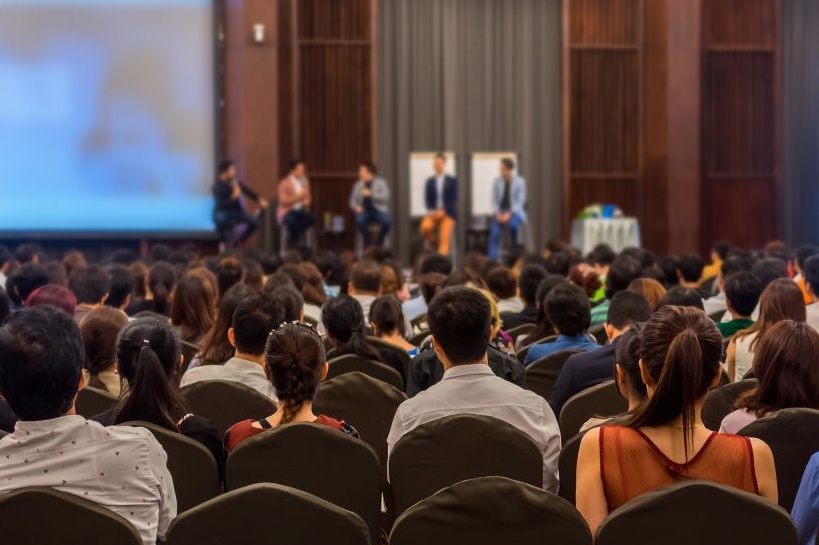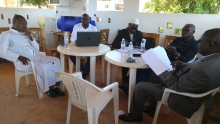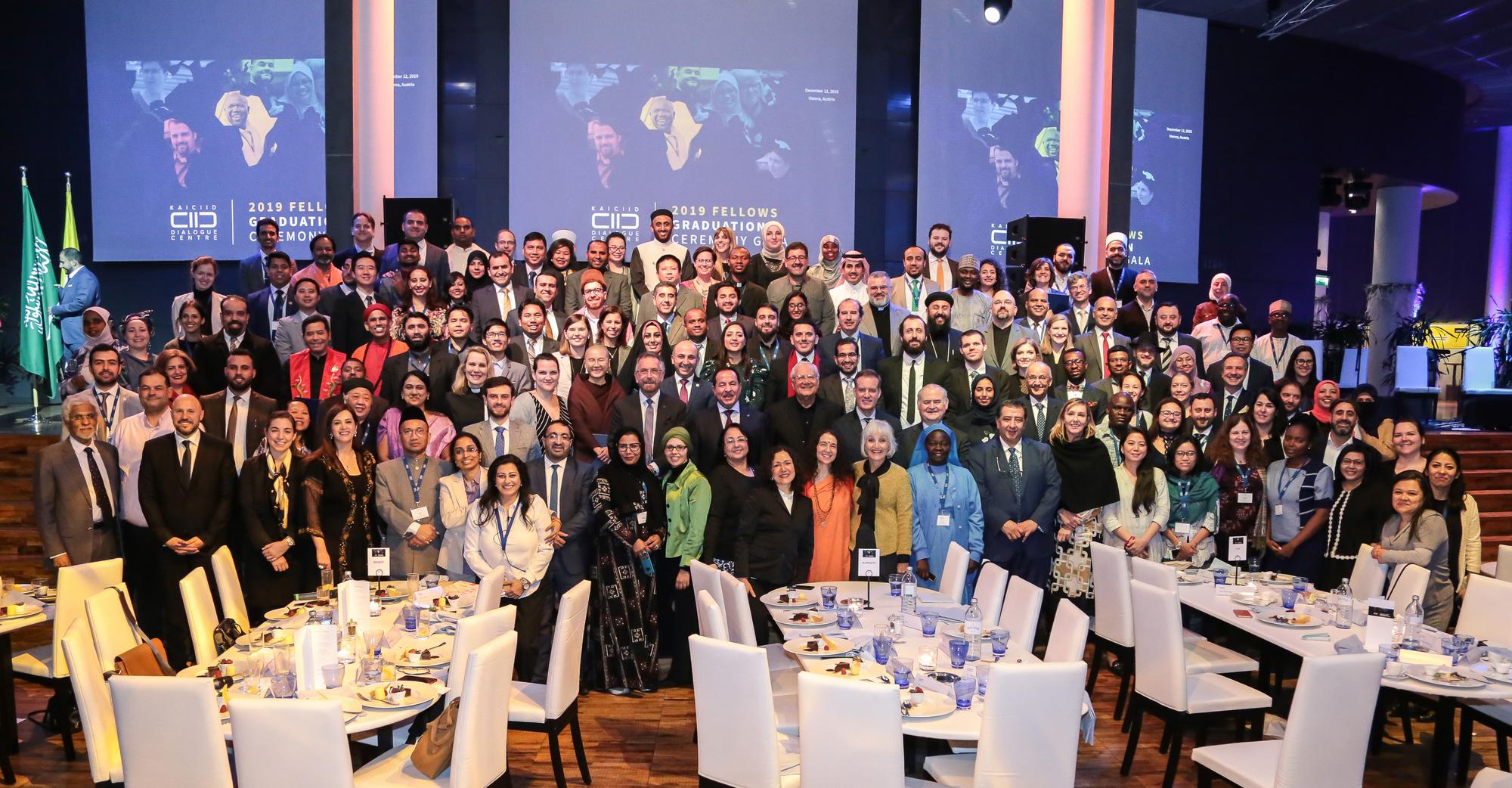Our global conferences and fora convene, among other relevant stakeholders from a variety of fields, religious leaders, policymakers and representatives of civil society organizations to address global challenges and threats to peaceful, cohesive communities. From our annual European Policy Dialogue Forum to the G20 Interfaith Forum, we have gathered thousands of participants to discuss issues such as combatting hate speech, using dialogue to support global development, and tackling violent extremism and the manipulation of religion to justify violence.

European Muslim Leaders' Majlis (EULEMA)

The European Muslim Leaders' Majlis (EuLeMa) is an informal network of European Muslim religious leaders who seek to synchronise Muslim voices in Europe, giving particular support to the work of the Muslim Jewish Leadership Council (MJLC). The EuLeMa was informally established in 2018 to support productive interactions and allow for a respectful exchange between faith and secular sectors in Europe in an effort to promote the equal rights and responsibilities of European citizens.
This network represents a new and unique body, which acts as a valuable example of intra-religious dialogue, alongside the MJLC. Upon the creation of the MJLC, it became evident that the European Muslim community is not centrally organized, with different groups often speaking different languages and identifying with non-European religious authorities or national governments.
This may impede the views and experiences of European Muslims and makes it more difficult to articulate them to effectively communicate their needs and requests to policymakers. Through its work, EuLeMa aims to foster cross-sectoral exchanges, engages in interfaith work, and supports campaigns for the rights of the Muslim community in Europe.
Webinars
KAICIID webinars convene prominent faith leaders and other religious actors, civil society and non-governmental organizations, academics, policy experts and government representatives to discuss pressing challenges related to peace, human rights and sustainable development. Register for an upcoming webinar or check out one of our archived sessions by clicking on the links below.
All webinars are presented in their original language.
Note: The webinars are ordered in a descending chronological order – most recent webinars are at the top of the page.
Interreligious Platform for Dialogue and Cooperation in the Arab World (IPDC)

Launched in 2018, the IPDC advocates the rights and inclusion of all communities in the Arab World, combats hatred and sectarianism and jointly addresses threats to peaceful coexistence. Platform members include twenty-three of the highest religious authorities from Muslim and Christian institutions across the Arab region.
The IPDC is a growing network of diverse religious and ethnic communities that come together to collaborate in the name of peaceful coexistence and interreligious dialogue. KAICIID implements all its programmes in the Arab region in collaboration with the IPDC, including:
- She for Dialogue – a women’s empowerment project currently working with women from Iraq, Egypt, Lebanon, Saudi Arabia and Syria to tackle relevant topics such as gender mainstreaming in the field of interreligious dialogue, and ways in which identity intersects with religion, ethnicity, culture and nationality.
- The Youth Forum for Interreligious and Intercultural Dialogue in the Arab Region, which provides an accessible, safe space for dialogue for young people from all religious, ethnic and cultural backgrounds.
- The implementation of KAICIID’s Dialogue360 projects (previously Dialogue 60 and Dialogue 100), which support grassroots organizations with interreligious dialogue initiatives.
- The Dialogue Journalism Fellowship, which trains journalists in interreligious dialogue while reinforcing the core values of journalism which promote accuracy, fairness, balance, as well as respect for diversity, ethnicity, and religion. The programme aims to influence the way media reports on conflicts in the region, helping journalists become more aware of their role as peacebuilders and dialogue practitioners.
For The Media
KAICIID experts are available for interview requests, speaking engagements or for more information about KAICIID's work. Please contact the KAICIID Communications Department for more details.
Press contact:
If you would like to subscribe to our mailing lists, please click here.
News
Plateforme des Confessions Religieuses de Centrafrique (PCRC)

In 2013, as violence intensified in the Central African Republic (CAR), key national leaders of the Catholic, Evangelical, and Muslim communities joined forces to de-escalate the crisis through the Platform of Religious Confessions of CAR, or “Plateforme des Confessions Religieuses de Centrafrique” (PCRC). Over the past few years, the PCRC has successfully defused tensions at the local level by deploying high-level religious leaders on the ground and conducting mediation initiatives between armed groups. KAICIID has supported the platform since 2017, helping to build and strengthen branches (or “antennae offices”) across the country.
Since its founding, the PCRC has run diverse initiatives to prevent violence. These include training religious and other community leaders to prevent hate speech and rumour-mongering, which can provoke unrest and incite clashes; informing political candidates and activists on the importance of using non-divisive language; hosting conflict-prevention sessions for youth leaders; and meeting with ruling politicians to advocate conciliatory messaging. Elsewhere it has urged militia leaders to renounce violence and encouraged Christian communities to allow displaced Muslims to return.
In 2021, as widespread violence resumed in the country, PCRC leaders deployed interreligious mediation teams to the front lines and opened dialogues between armed groups, the local population, UN peacekeepers, government representatives and civil society groups in an effort to sustain the country’s current peace agreement.
Publications
Newsletter
KAICIID Fellows Alumni Network

Following the close of KAICIID Fellows first year of training, graduates join a vibrant community of hundreds of global changemakers through the programme’s alumni network. KAICIID regularly hosts continuing education opportunities and workshops for Fellows alumni, and fosters an environment of opportunity and cross-disciplinary collaboration. The Network has helped Fellows expand and deepen the impact of their initiatives, allowing them to share best practices with one another and find funding and resources. The Network also provides professional development opportunities to reinforce lasting outcomes in the field.